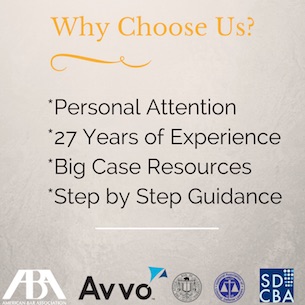Protecting Your Future
A criminal record can have a substantial impact on your life. Background checks have become the norm for most businesses, limiting employment opportunities. Even when the offense is minor, your prospective employer may choose to deny your application due solely to a criminal conviction. Since mortgage and credit card lenders must investigate the trustworthiness of a borrower, they frequently conduct background checks, as well. A criminal conviction can sometimes result in a denial of credit. Your ability to pursue opportunities for higher education could also be limited, since a university can deny admission based on the results of a criminal background check. Fortunately, our criminal justice system recognizes the need for those convicted to be able to move on – leaving behind the obstacles created by a previous criminal conviction.
Cleaning Up Your Record
Click Here for a FREE Case Evaluation.
There are several frequently-used methods for cleaning up a criminal record:
 Factual Innocence Motion – If you can demonstrate that you were wrongfully accused of committing a crime, you may be able to clear records of the case by filing a factual innocence motion. This requires proof that there is no reasonable cause to believe that the accused committed the offense he has been charged with. If this motion prevails, all of the records relating to the arrest and charges must be sealed for three years, and then destroyed. These motions are rarely successful, because the burden of proof is very high. Ideally, this motion should be filed within two years of the date of arrest or accusatory pleading, though the courts permit a later filing when there is good cause.
Factual Innocence Motion – If you can demonstrate that you were wrongfully accused of committing a crime, you may be able to clear records of the case by filing a factual innocence motion. This requires proof that there is no reasonable cause to believe that the accused committed the offense he has been charged with. If this motion prevails, all of the records relating to the arrest and charges must be sealed for three years, and then destroyed. These motions are rarely successful, because the burden of proof is very high. Ideally, this motion should be filed within two years of the date of arrest or accusatory pleading, though the courts permit a later filing when there is good cause.
Expungement – Expungements consist of setting aside a prior criminal conviction, and dismissing the case. This process involves updating the record of conviction to reflect a withdrawal of the guilty plea, entering a not guilty plea in its place, terminating probation, and dismissing the case. While expungements don’t fully eliminate records of an arrest, prosecution, or conviction, they do allow you to state that you have not been convicted of a crime on many job applications.
Probation Modification/Termination – If you’re presently on probation, you might be eligible to have the terms modified, or have your probation terminated early. This generally requires that the defendant complete at least two-thirds to three-fourths of the probationary sentence, along with all of the probationary requirements. To be eligible for an expungement, a defendant can’t actually be on probation, so probation termination is the first step toward expunging your conviction.
Reducing Felonies To Misdemeanors – California Prop 47 reduced some less serious and nonviolent crimes from felonies to misdemeanors. These include fraud and theft crimes involving stolen property valued at $950 or less, as well as personal use of most illegal drugs. Individuals previously charged with – or convicted of – a felony that is now classified as a misdemeanor may be eligible for resentencing or reduced charges. Felonies may also be reduced to misdemeanors when the offense is considered a “wobbler” – a crime which can be punished as either a felony or a misdemeanor, depending on its severity.
Request A Free, Confidential Case Review Today
Every case is unique, and the available options for cleaning your criminal record depend on the circumstances surrounding your case. In taking a personal approach to working with our clients, we gain a better understanding of their needs, and how to best meet them. Our San Diego criminal attorneys have assisted numerous clients in cleaning up their criminal records. Don’t struggle with the consequences of past mistakes: We’re prepared to help you complete the legal proceedings necessary to relieve the burden of a criminal record.
We have the decades of experience – and familiarity with the law and local courts – to help you clean up your criminal record. Request a free consultation with the Law Office of Gregory Garrison today!

